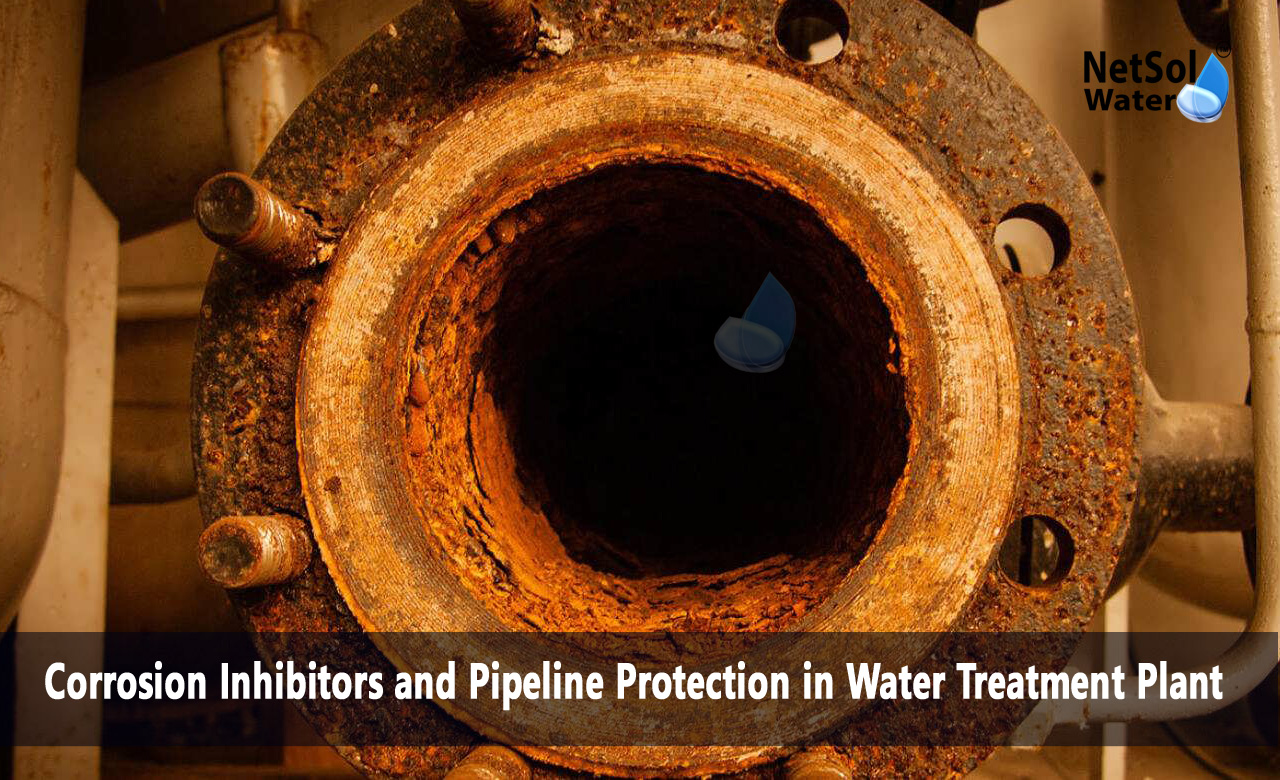Corrosion Inhibitors and Pipeline Protection in Water Treatment Plant
Pipeline networks in water treatment plants face corrosion every day. Metal surfaces start to weaken in contact with water and oxygen. Small pits can grow into large leaks. These leaks can cause unplanned downtime. Teams can face repair work at odd hours. Inhibitors can protect metal surfaces from decay. A stable pipeline network can handle high pressure and flow. It moves treated water without risk. Any break can lead to water loss or contamination.
Netsol Water serves as a leading water treatment plant manufacturer that designs systems that protect pipelines from corrosion damage. It plans each step from material choice to inhibitor dosing. Its solutions use proven chemicals that slow metal loss. These chemicals form a shield on equipment. They guard pumps valves and joints. They cut repair costs and extend service life. They help plants meet safety standards. They support plant teams in daily checks. A clear action plan guides operators through dosing and monitoring stages. This plan keeps pipelines in good health. It ensures smooth water flow each day.
Role of Corrosion Inhibitors
Corrosion inhibitors can slow the attack on metal in pipelines. They can reduce metal loss. They can improve plant safety. They can cut repair work. They can extend pipeline life. Let us have a look at some
Film Forming Inhibitors: These inhibitors can attach to metal. They can create a thin film on surfaces. The film can block water and oxygen. The film can shield pipes from decay. Operators can dose these chemicals at set points.
Passivation Inhibitors: These agents can enhance natural oxide layers on metal. They can make a stable surface. They can stop corrosion from growing. Teams can monitor layer quality with probes. They can adjust dosing to keep the layer strong.
Common Types of Corrosion Inhibitors
Plants can use different chemicals to fight corrosion. Choosing the right type can improve results. Teams must match chemical to water quality. They must match to pipeline material. They must match to temperature and flow. Let us have a look at some
Organic Inhibitors: These chemicals can form a layer on metal. They can bond to steel. They can slow metal reaction. They can adapt to changing water chemistry. Operators can add them at dosing points.
Inorganic Inhibitors: These agents can work by changing water pH. They can form insoluble compounds on surfaces. They can fill pores in the metal. They can block corrosive ions. Teams can measure pH to check their effect.
Pipeline Protection Techniques
Protecting pipelines can involve more than inhibitors. Using added methods can increase system safety. Teams can combine tools and chemicals. A layered approach can work best. It can keep pipelines in good shape. Let us have a look at some
Cathodic Protection: This method can apply a small electrical current. It can reduce the reaction that causes corrosion. Technicians can install sacrificial anodes or impressed current systems. They can monitor voltage to adjust protection.
Coating and Lining: This choice can add a physical barrier inside pipes. It can stop water from touching metal. Teams can select polymers or epoxy layers. They can inspect and repair coatings as needed.
Monitoring Systems: Sensors can track metal loss over time. They can send data to control rooms. Teams can check alerts on probe readings. They can plan maintenance before leaks arise.
Selecting a Reliable Manufacturer
Choosing the right water treatment plant manufacturer can shape a plant plan. A proven manufacturer can guide each stage. Teams can gain help in design and operation. They can tap into deep know how. They can improve corrosion control. Let us have a look at some
Experience and Knowledge: A top maker can draw on past projects. It can apply lessons to each plant. It can test chemicals under real world conditions. It can refine dosing strategies over time.
On Site Support: A true partner can join teams in the field. It can help set up equipment and tests. It can train staff on inspection and maintenance.
Product Range and Services: A manufacturer can offer a wide set of chemicals and systems. It can cover inhibitor chemicals and monitoring tools. It can supply pumps valves and sensors. It can package these with training and support. This choice can save time and cost.
Conclusion
Corrosion inhibitors and pipeline protection work hand in hand to keep plants running. Netsol Water can guide each step from chemical choice to system design. As a trusted water treatment plant manufacturer Netsol Water stands ready to solve corrosion challenges. Contact Netsol Water today to get more details or to request a custom consultation. Teams can improve plant safety and performance with expert help.
Contact Netsol Water at:
Phone: +91-9650608473, Email: enquiry@netsolwater.com



